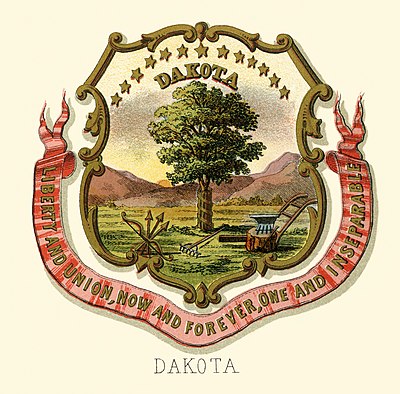From today's featured article
The siege of Calais (4 September 1346 – 3 August 1347) marked the conclusion of the Crécy campaign, during the Edwardian phase of the Hundred Years' War. On 26 August 1346, an English army under King Edward III (effigy pictured) inflicted a heavy defeat on a large French army led by King Philip VI at the Battle of Crécy. A week later they invested the well-fortified port of Calais, which had a strong garrison under the command of Jean de Vienne. Edward made several unsuccessful attempts to breach the walls or to take the town by assault. During the winter and spring the French were able to run in supplies and reinforcements by sea, but in late April the English established a fortification which enabled them to command the entrance to the harbour and cut off the further flow of supplies. On 3 August Calais capitulated. The town provided the English with an important strategic lodgement, and was not recaptured by the French until 1558. (This article is part of a featured topic: Hundred Years' War, 1345–1347.)
Did you know ...
- ... that according to investigations by independent press agencies, journalist Shireen Abu Akleh (pictured) was killed by an Israel Defense Forces bullet while wearing a blue "press" vest?
- ... that the Amazon rainforest may change into a savanna once it passes a tipping point?
- ... that Carl-Gustav Groth was the first surgeon in Sweden to perform pancreas, liver, and islet cell transplants?
- ... that the 14th-century Tashfiniya Madrasa in Tlemcen was demolished by French colonial authorities in 1876?
- ... that actor Oscar Isaac contributed to the creation of his character's background history in the film A Most Violent Year (2014)?
- ... that three gasholders at the Windsor Street Gasworks were painted in the claret and blue colours of local football team Aston Villa?
- ... that Canadian professional ice hockey player Larry Jeffrey had eleven knee surgeries in a span of nine years?
- ... that among the special events broadcast by the Maine Television Network during its brief existence were a fashion show, a basketball tournament, and an ordination ceremony?
In the news
- Ayman al-Zawahiri (pictured), the leader of al-Qaeda, is killed by a U.S. drone strike in Kabul, Afghanistan.
- In association football, UEFA Women's Euro 2022 concludes with England defeating Germany in the final.
- In cycling, Annemiek van Vleuten wins the Tour de France Femmes.
- Flooding in the U.S. state of Kentucky kills at least 37 people and leaves at least 30 others missing.
On this day
- 1857 – Indian Rebellion: An eight-day siege of a fortified outbuilding in Arrah occupied by 68 defenders against more than 10,000 men ended when a relief party dispersed the besiegers.
- 1903 – Macedonian rebels in Kruševo proclaimed a republic, which existed for ten days before Ottoman forces destroyed the town.
- 1913 – An agricultural workers' strike in Wheatland degenerated into a riot, becoming one of the first major farm-labor confrontations in California.
- 1940 – World War II: Italian forces began a conquest of British Somaliland, capturing the region in 16 days.
- 1997 – The Sky Tower (pictured), the tallest free-standing structure in the Southern Hemisphere at 328 m (1,076 ft), opened in Auckland, New Zealand.
- Hamilton Fish (b. 1808)
- Tony Bennett (b. 1926)
- Frumka Płotnicka (d. 1943)
Today's featured picture

|
The Dakota Territory was an organized incorporated territory of the United States that existed from March 2, 1861, until November 2, 1889, when the final extent of the reduced territory was split and admitted to the Union as the states of North Dakota and South Dakota. This is the Dakota Territory's historical coat of arms, illustrated by Henry Mitchell in State Arms of the Union, published by Louis Prang in 1876. The design is based on the great seal of the territory, which was officially described as follows:
Illustration credit: Henry Mitchell; restored by Andrew Shiva
Recently featured:
|
Other areas of Wikipedia
- Community portal – The central hub for editors, with resources, links, tasks, and announcements.
- Village pump – Forum for discussions about Wikipedia itself, including policies and technical issues.
- Site news – Sources of news about Wikipedia and the broader Wikimedia movement.
- Teahouse – Ask basic questions about using or editing Wikipedia.
- Help desk – Ask questions about using or editing Wikipedia.
- Reference desk – Ask research questions about encyclopedic topics.
- Content portals – A unique way to navigate the encyclopedia.
Wikipedia's sister projects
Wikipedia is written by volunteer editors and hosted by the Wikimedia Foundation, a non-profit organization that also hosts a range of other volunteer projects:
-
Commons
Free media repository -
MediaWiki
Wiki software development -
Meta-Wiki
Wikimedia project coordination -
Wikibooks
Free textbooks and manuals -
Wikidata
Free knowledge base -
Wikinews
Free-content news -
Wikiquote
Collection of quotations -
Wikisource
Free-content library -
Wikispecies
Directory of species -
Wikiversity
Free learning tools -
Wikivoyage
Free travel guide -
Wiktionary
Dictionary and thesaurus
Wikipedia languages
This Wikipedia is written in English. Many other Wikipedias are available; some of the largest are listed below.
-
1,000,000+ articles
-
250,000+ articles
-
50,000+ articles



